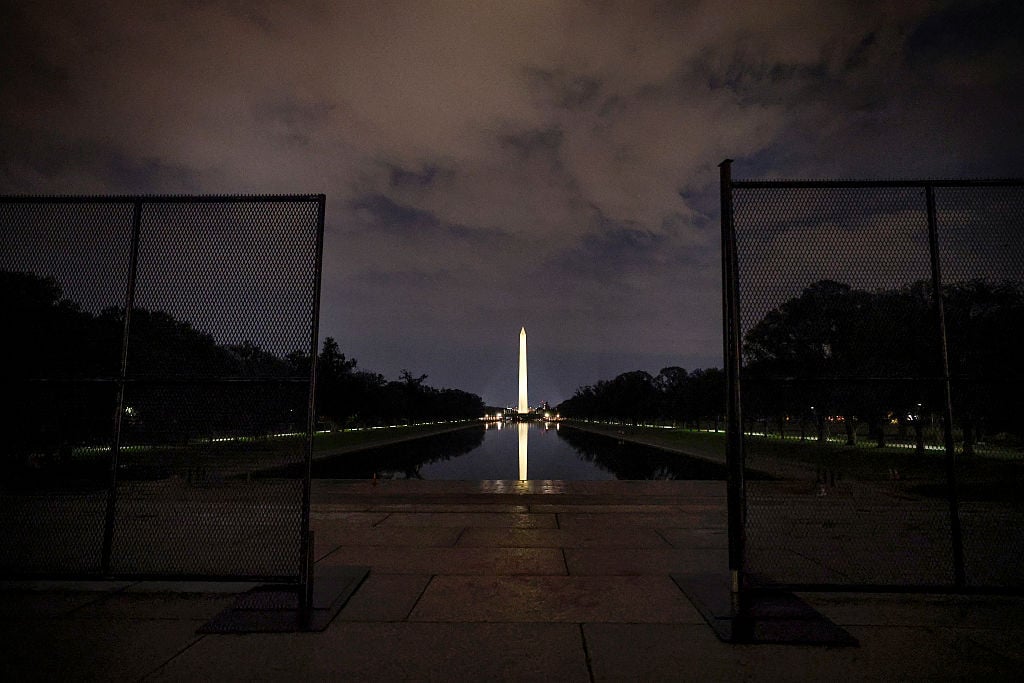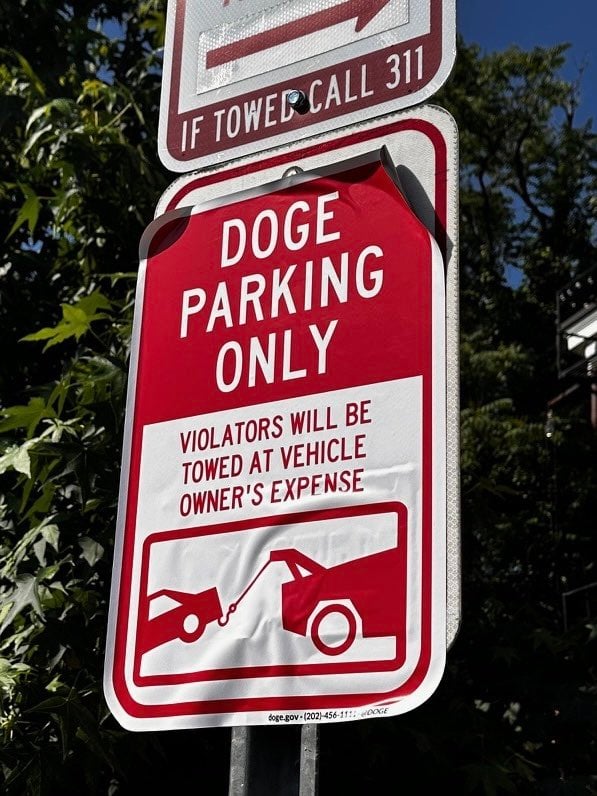Suburban transit advocates were justifiably miffed last week when a federal judge’s ruling in a case about the Purple Line, the planned commuter rail connecting Bethesda to New Carrollton, indefinitely delayed the project in a ruling that cited troubles at Metro as a reason why it should undergo further environmental review.
But rather than encourage the Federal Transit Administration—which was about to sign off on $900 million in federal funding for the Purple Line—to appeal Leon’s ruling on the merits of smart transit policy, a community group supporting the Purple Line is trying to unhinge the case by going after the judge.
In his nine-page opinion, Judge Richard Leon sided with a Chevy Chase, Maryland, group called Friends of the Capital Crescent Trail and ordered the FTA to vacate its approval of the project. Leon’s rationale was that Metro’s sagging ridership and other recent woes warranted a second environmental-impact review just months before construction was supposed to begin, even though the Purple Line is under the auspices of the Maryland Transit Administration, not the Washington Area Metropolitan Transit Authority.
Transit backers rightly called out the flaws Leon’s core finding—that the current problems at WMATA will be indicative of the future performance of the Purple Line, which, while expected to rely on transfers from Metro for a significant chunk of ridership, is not part of Metro.
But now the Action Committee for Transit, made up of Montgomery County residents eager for the new train service, has been trying to impugn Leon, first by pointing out that the judge lives in Chevy Chase, which WRC reported on Monday. The group also emailed Washingtonian with a longer dossier of allegations tying Leon’s wife to Purple Line opponents based on her participation in a neighborhood association and that his neighbors’ jobs could color his views of the project.
“The judge has an appearance of conflict,” says Ben Ross, a board member of the Action Committee for Transit. We don’t know if there’s an actual conflict.”
That statement alone should be enough to make the committee’s grievances seem fishy. Instead of sticking to Leon’s opinion—which has been widely blasted as shoddy transit policy for using one train system’s problems as a cudgel against another—Ross and other advocates are going after Leon himself. But their evidence, admittedly, is a little thin.
“All we know is what we found on the internet,” Ross says.
If that style of explanation rings familiar, it might be because it sounds like something said by someone else who tried to upend a federal case by attempting to create an appearance of conflict. In June, Donald Trump launched a nasty line of attack on Judge Gonzalo Curiel of the US District Court for Southern California, saying Curiel should not preside over a lawsuit concerning the viciously anti-immigrant Republican presidential nominee’s Trump University program because the judge—who was born in Indiana—is of Mexican descent.
The Action Committee for Transit’s attack on Leon is not nearly as high-profile or as odious as Trump’s statements about Curiel but it’s equally flimsy. For one thing, it attempts to engineer a controversy out of one of the judge’s personal qualities—in this instance, his residence—rather than pick apart his ruling. The other hitch is that Ross’s group is trying to prosecute its argument against the judge through media, because it almost certainly has no legal avenue to challenge Leon’s ruling. The parties in the case are the Friends of the Capital Crescent Trail, the FTA, and the MTA, none of which moved to relocate the case or remove Leon in the two years since it was filed. (Despite their client’s mouthing off, Trump’s lawyers in the Trump University case haven’t asked Curiel to recuse himself, either.)
“If they had real grounds they would try to get the parties to move it,” says Susan Bloch, a professor at Georgetown University Law Center who specializes in professional ethics. “The problem these people have is that they’re not parties to the case, and the parties in the case don’t have a problem. If they did, the first thing they would have done is ask Leon to recuse himself.”
But the parties never asked Leon to recuse himself from the case. For that, though, at least one Purple Line proponent is mad at the FTA’s counsel. “I say shame on the lawyers,” says state Senator Jim Rosapepe, whose Prince George’s County district is slated to have five Purple Line stations.
To Rosapepe, a Democrat from College Park, Leon’s ruling resonates with another sentiment associated with Trump’s campaign. “There’s some concern about the rigging of the political system,” Rosapepe says. “Did [Leon] miss the whole year?”
Rosapepe’s district is centered around College Park and would benefit directly from the Purple Line, which besides easing commutes between Montgomery and Prince George’s counties, is also expected to spur real-estate development along its route. Perhaps that’s why he’s quick to dismiss Leon as an agent of the “country-club set” and call the ruling a “midnight attack on the working people of suburban Maryland.”
There’s no doubt the timing of Leon’s ruling was awful for the Purple Line. It landed just four days before the FTA was supposed to sign off on a federal grant that would have covered nearly half its $2 billion construction cost, and weeks before the scheduled groundbreaking, which could raise new concerns about construction contracts.
A spokesman for the Justice Department, which represented the FTA in the case, tells Washingtonian there were no motions to move it to a different court or judge. Leon, in fact, has a fairly sterling reputation on the bench. While some of his opinions on birth control and voting rights have drawn consternation on the left, the judge—who was appointed to the federal bench in 2002 by President George W. Bush—has also drawn a lot of praise for an independent streak, especially after 2013 ruling against the National Security Agency’s bulk collection of phone data.
Leon’s ruling in the Purple Line case—as a piece of transit policy—is far from perfect. But rather than argue why Metro’s present-day problems shouldn’t pose an environmental concern for a future train line, or cheer on a likely appeal, the Action Committee for Transit is going after the judge on a personal level.
“The standard is the appearance of conflict,” Ross says. But with evidence that amounts to little more than a neighborhood phone tree, Ross’s group and local officials like Rosapepe are trying desperately to smell a rat where one may not exist.
Better, then, to appeal the ruling and argue for the Purple Line on its merits: that it’s a much-needed connection between fast-growing suburban communities choked by car traffic, that it will carry an estimated 70,000 riders per day, and that—now that it’s relevant—only one-quarter of its riders are expected to be direct transfers from Metro.
“To impugn the integrity of the judge or his wife,” Bloch, the Georgetown law professor says, “is inappropriate.”



















